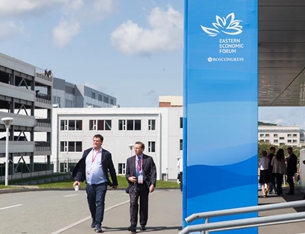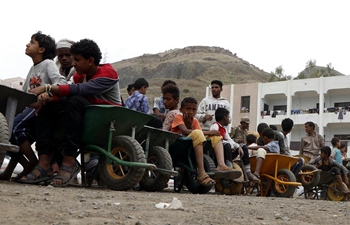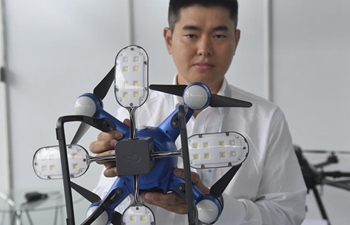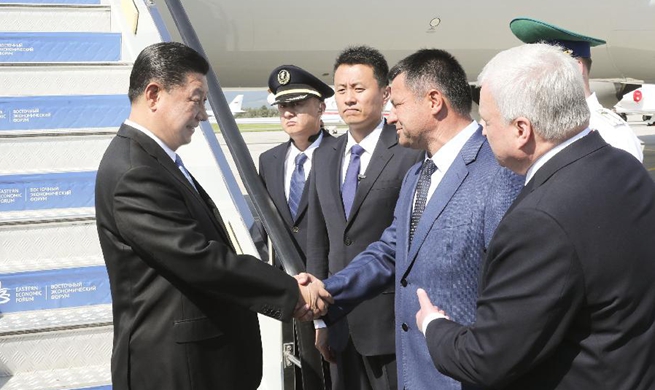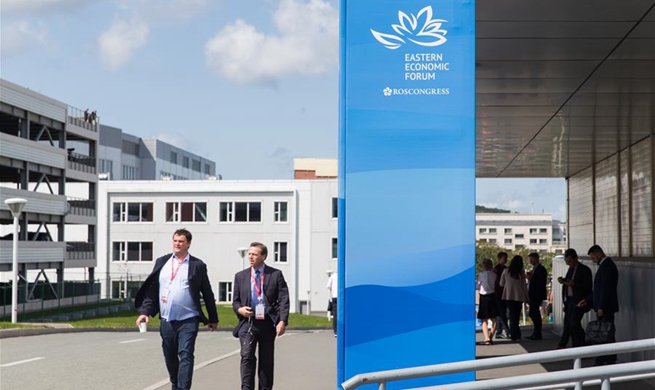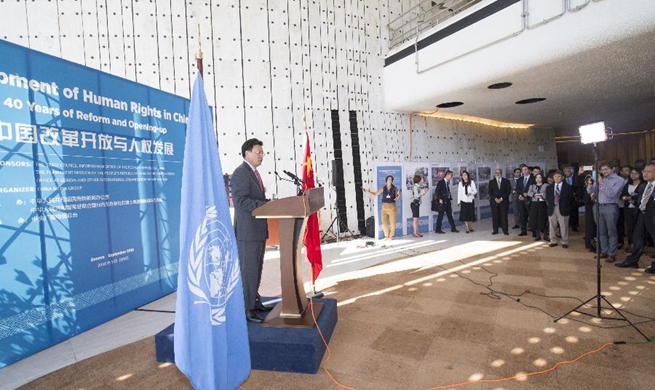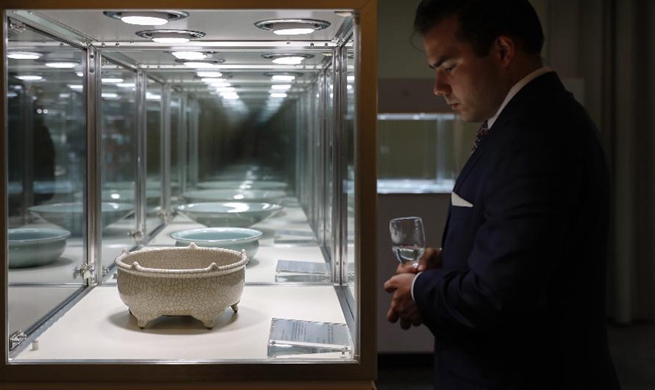BEIJING, Sept. 11 (Xinhua) -- Pan Fei, a Zhejiang-based optometrist, made a decision that annoyed his wife -- canceling all of their daughter's private tutoring classes during summer vacation.
Pan was worried after his daughter's eyesight check in June, in which the fourth-grade student showed signs of nearsightedness or myopia.
Myopia is an inability to properly see objects that are far away, with objects often appearing blurry, that in many cases gets worse as time progresses.
"Compared with other children, my daughter has a higher risk of having bad eyesight because parents with myopia are more likely to pass it on to their children," Pan said.
Like Pan, a growing number of Chinese parents have been troubled by eyesight problems in their children, which may be caused by reasons such as heavy schoolwork, excessive screen time, and a lack of outdoor activities.
"One in four children in my daughter's class wear glasses. At the end of each semester, her eyesight is worse," a Hangzhou-based mother surnamed Li said.
As the summer vacation ended, the narrow corridors of ophthalmology clinics at Chinese hospitals are crowded with people getting their eyesight checked.
Ni Hailong, an optometrist with the Second Affiliated Hospital of Zhejiang University's School of Medicine, said that they received around 3,000 patients on peak days. Half of them were children.
A report by the World Health Organization said that about 600 million people in China, nearly half the population, have myopia. Seven out of 10 senior high school or college students, and four out of 10 primary school students are said to be among them.
"It's extremely urgent to tackle vision problems, as myopia rates among Chinese teenagers have shot up and shown a trend at younger ages," said Ni.
In addition to medical experts, groups across the country, from the government to schools, are increasingly recognizing the threat current rates of poor vision pose.
China rolled out a new scheme in late August to curb the rise in myopia among children and teenagers.
The scheme, jointly issued by the Ministry of Education, the National Health Commission and six other departments, aims to keep the myopia rate among six-year-olds at around 3 percent by 2030, with the incidence among primary school students to drop below 38 percent, and the rate among junior and senior high school students to fall below 60 percent and 70 percent respectively.
The rising incidence of degenerative eye problems mirrored a trend in children in many countries. They spend more time engaged in reading, studying or more recently glued to computer and smartphone screens.
This is particularly the case in East Asian countries. The high value placed on educational performance is driving children to spend most of their time indoors, depriving them of the sunlight that allows their eyes to develop.
Chinese authorities have noticed that academic success alone is not enough for children's all-round development and have started nurturing students in their morals and intellect, culturally, artistically and through sports.
Schools have taken action. Physical education (PE) class is a good time for Liu Ziqi to relax. After he entered the eighth grade, high academic pressure forced him to sit in classroom almost the whole day.
"Sometimes my neck and eyes feel uncomfortable," said 13-year-old Liu.
Two years ago, Huiyuan Campus of No.7 Yucai School in the city of Chengdu where he studies launched a program promoting one physical education class each day, with diversified choices for students ranging from football, basketball, table tennis to taekwondo.
Thirty-nine public schools in the city's Jinjiang District have launched the same program. The district government has invested 15 million yuan (around 2 million U.S. dollars) in the program, hired 138 new PE teachers, and rented venues outside schools.
The prevention and treatment of myopia requires joint coordination between education departments, schools, and families.
Liu is a member of the school's basketball team. His mother Zhou Sha supports his son developing hobbies. In her opinion, outdoor exercise can help alleviate the pressure from studies and increase learning efficiency.
In Pan's family, canceling private tutoring classes was the first step. "By changing the habits that ruin her eyes in the long run, I hope to prevent, or at least delay, the onset of her myopia. This is a wish for daughter from father," he said.




